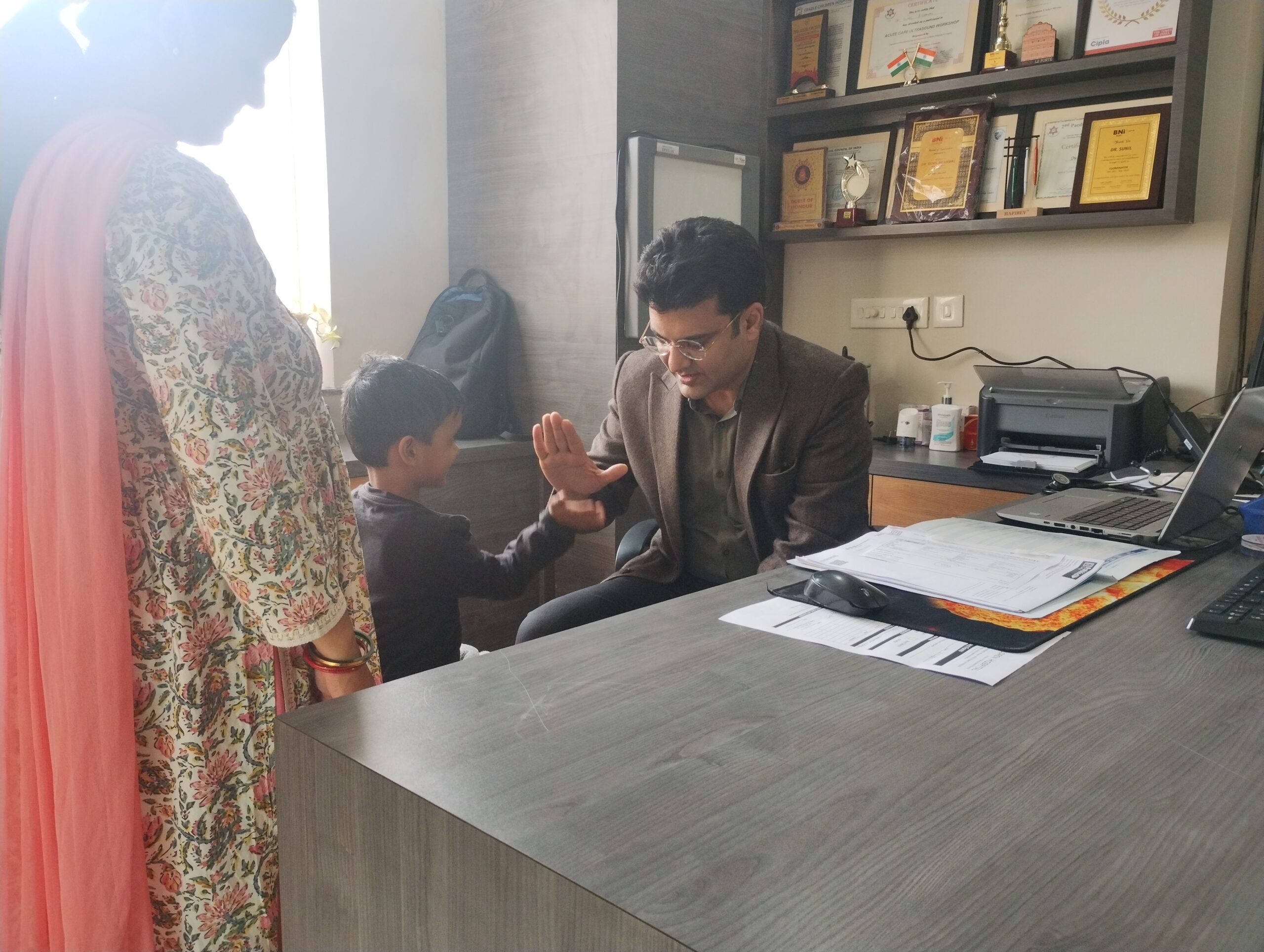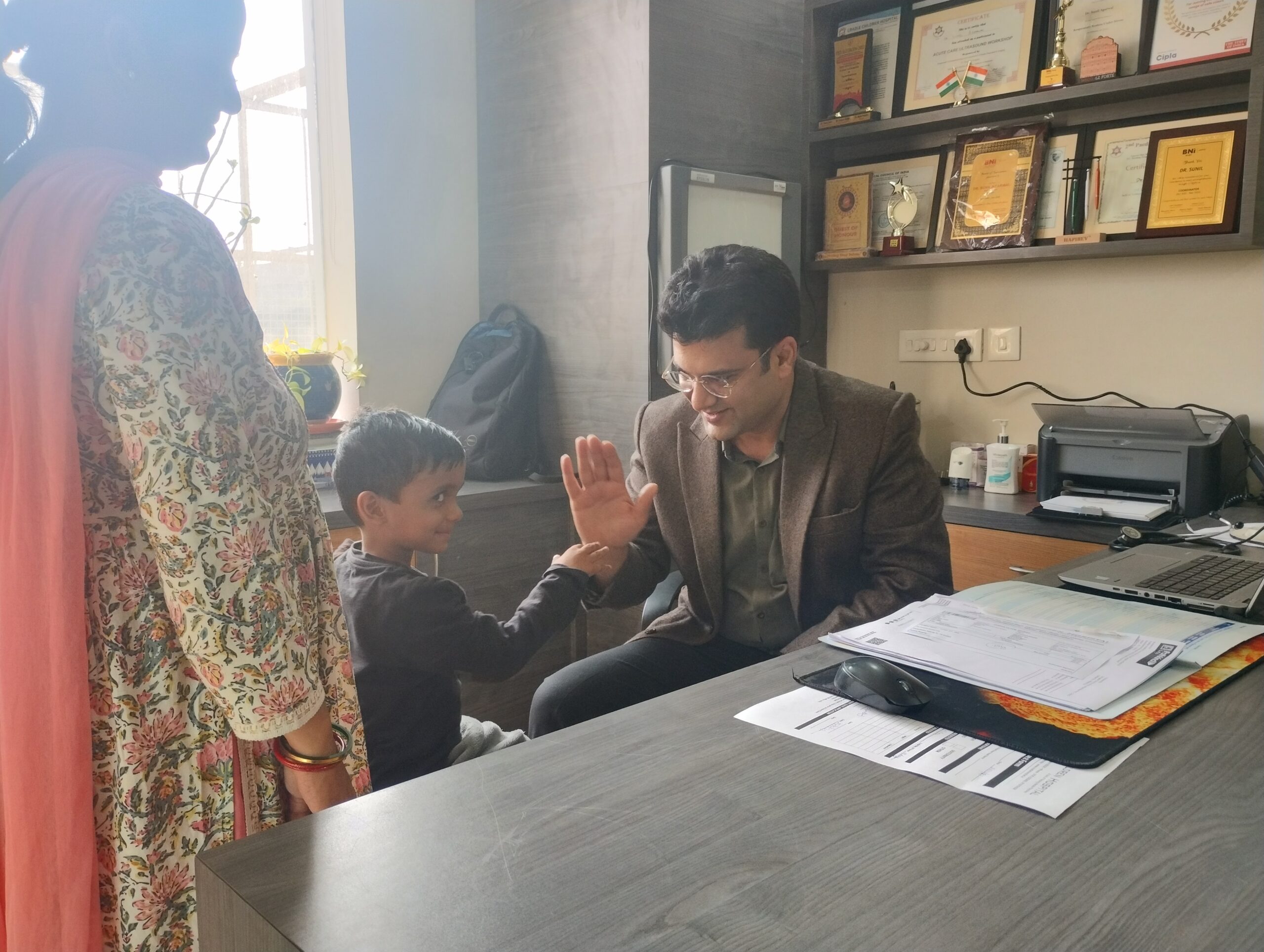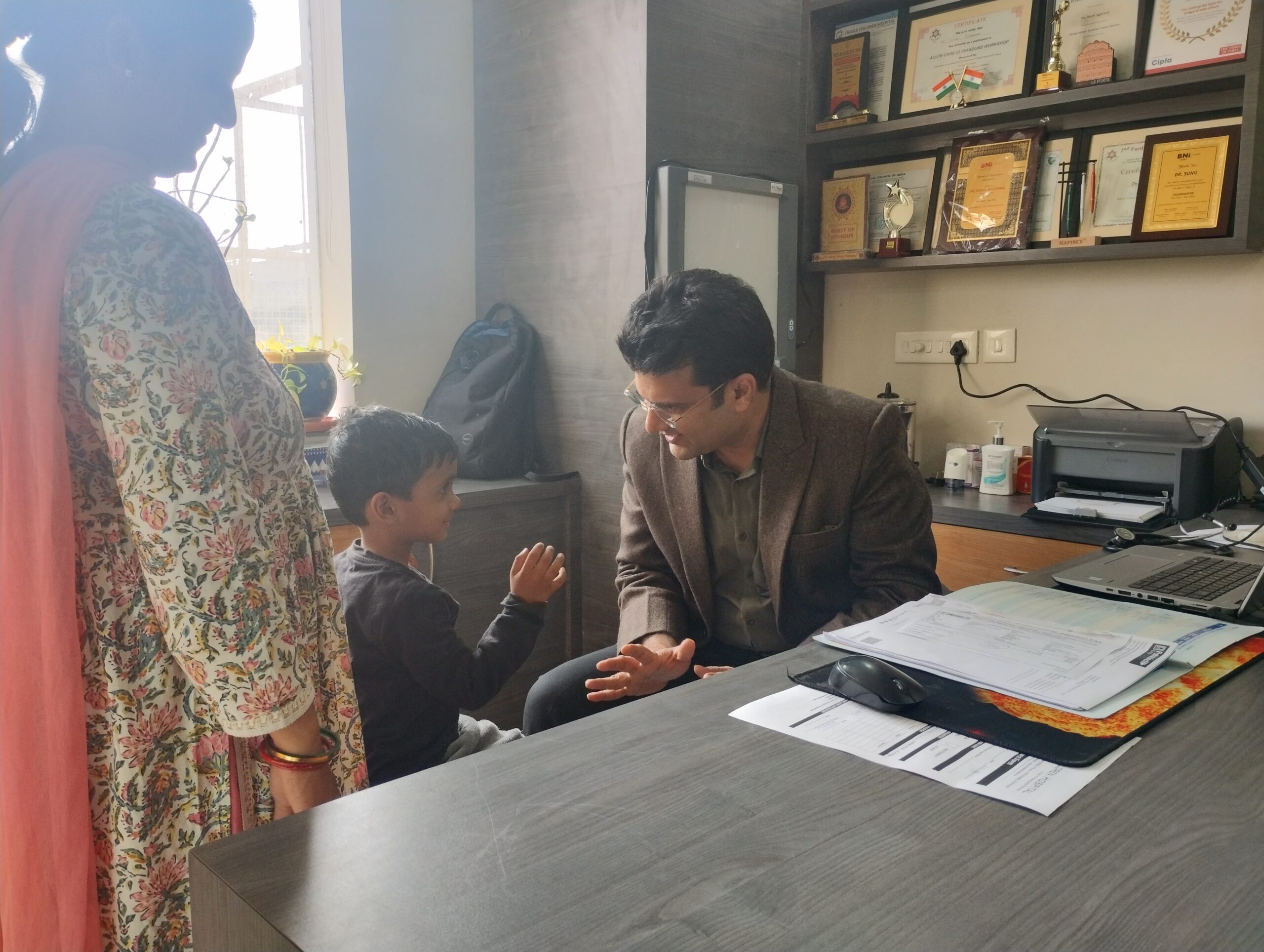


Asthma & Allergy
Are you looking for the Best Asthma & Allergy Clinic in Jaipur? At Cradle Children's Hospital, the Asthma and Allergic Clinic is open 24*7, where you can fix an appointment with the Asthma and Allergic Specialist—the specialist diagnoses and treats Asthma and Allergic Issues in Children in this clinic.
What Is Asthma?
Asthma disease is also called “bronchial asthma.” During this disease, the children’s lungs can be severely affected. If any child gets Asthma Disease, it does not go away and also needs regular medical cures; otherwise, it becomes a severe issue. Muscles around the airways are relaxed during breathing time, and the air moves quickly. When you have an asthma attack, the following things can occur:
- Bronchospasm: The muscles near the airways tighten. It may make your airways narrow. Air cannot flow through tightened airways because air needs a freely moving way.
- Mucus production: During an asthma attack, your body makes more mucus. This thick mucus blocks the airways.
- Inflammation: If the lining of your airways has swollen. Swollen airways may affect the lungs.
Types of Asthma
Asthma is of two types according to the causes and severity:
- Intermittent: Intermittent is a kind of asthma that comes and goes. During this asthma stage, you can feel normal between asthma flares.
- Persistent Asthma: Persistent Asthma is a type in which you can often experience symptoms. Asthma’s signs can be mild or severe. Only an Asthma specialist Doctor can clear you how frequently you have Asthma symptoms, and he is also clear about what you can do during an asthma attack.
Our Experienced Doctor

Dr. Mohit Poddar
Paediatric medicine
Paediatrics Allergy & Asthma
Signs of Asthma
Chest tightness, pain or pressure, Coughing, Shortness of breath, and Wheezing are the symptoms of Asthma.
Diagnosis of Asthma
An asthma specialist will ask about the symptoms you have seen in your children over the last 4 to 5 days. He may order a spirometry and chest X-ray to diagnose this breathing disorder. After this diagnosis procedure, they reach the cause of Asthma. Then, they start their treatment strategy.
Treatment of Asthma
Your healthcare provider may offer you some medications and Therapies, i.e., Bronchodilators, Anti-inflammatory medicines, and Biologic therapies for asthma.
What Is an Allergy?
If A person comes in contact with substances in the atmosphere that are innocuous to most people, it can cause allergies. These substances are called allergens and are available in dust mites, insects, ticks, molds, foods, pets, pollen, and medications. Allergy is one of the influential factors linked with the persistence and cause of asthma.
What Does an Allergist Do?
An allergist is responsible for diagnosing and treating asthma. He also treats allergic disorders. The allergist also has experience in identifying allergy and asthma triggers. Allergists assist people in treating or controlling their allergy issues.
When To See an Allergy Specialist?
You can see an allergist in the following conditions:
- Skin resulting in hives (urticaria) or eczema.
- Lungs result in asthma.
- Eyes and Nose that result in allergic conjunctivitis and rhinitis.
What To Expect From the Allergy Specialist?
The allergist will perform many tests to determine the allergen that triggers your immune system. He asks you about your symptoms and then makes a plan to treat your allergic issues. In treating the allergy, your allergist may recommend that you stay away from the substances that affect you and give the medication that helps to provide relief in recovery.
Conclusion: Our hospital’s Asthma and Allergy Clinic provides top-notch asthma and allergy care in Jaipur. Our technique prioritises the patient first, and we utilise cutting-edge treatments with a skilled team to provide the best and most satisfactory care. Visit our Asthma and Allergy Clinic for professional care and a healthier, symptom-free life.
Make an Appointment
Our Doctors are available 24 x 7 at Cradle Children’s Hospital.
Doctors Availability
Our Doctors are available 24 x 7 at Cradle Children’s Hospital. Call us to book an appointment.




